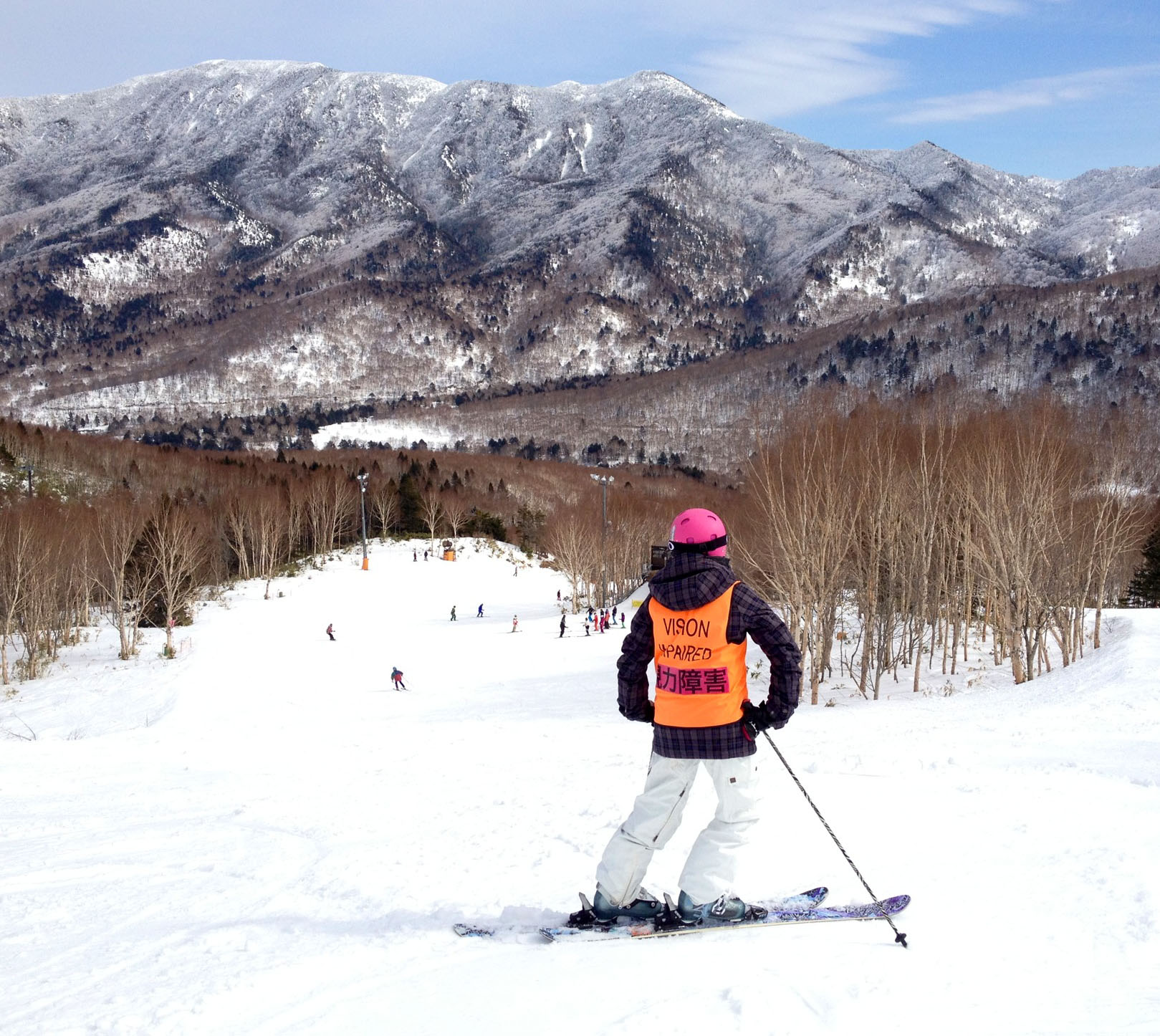An avid skier since the age of five, Debbie King has continued the sport she loves after losing her vision essentially overnight.
At the age of 51, Debbie was diagnosed with Optic Nerve Head Drusen, a condition that has resulted in a loss of her peripheral vision and leaves her with approximately 15 per cent total sight.
“The first winter that I skied after my vision loss was a real challenge. If it wasn't for the fact that I was skiing at a place I had known all my life (Mt Buller) I would have really struggled,” said Debbie.
That was in 2008, and by the 2010 snow season Debbie was thinking she may have to give up on a sport that she had loved for so long because she was finding it difficult to negotiate the crowds of fellow skiers.
“I was still able to ski but was unable to see anyone around me which became a real safety issue. So I had a vest made that declared me to be a Vision Impaired Skier, something that I didn't really want to announce to the world, and everything changed from then on. People gave me a wide berth and with help from my husband who was shouting instructions about how safe it was for me to stop, turn and go I was able to get out there with more confidence,” said Debbie.
Debbie has continued to ski around the world.
“I have travelled to the USA and several times to Japan. I've had my vest translated into Japanese, with the help of our local sushi store, and most people stay out of my way,” Debbie explained.
After advice from Paralympian Jessica Gallagher and BC (British Columbia) Adaptive Snow Sports, it was decided a two-way bluetooth headset, like those used in motorcycle helmets, would greatly assist Debbie and her husband with communicating on the slopes.
“We have a range of up to 700 meters so he can tell me when it is safe to go, turn and tell me what's going on around me. We used them last year at Mt. Buller, Japan and in New Zealand, where they became especially useful when we skied the Tasman Glacier,” said Debbie.
Although other skiers are sometimes cautious of Debbie, most have proved to be supportive.
“Generally speaking, everyone has given me so much encouragement and it can be quite the conversation starter if they are brave enough to ride the chair lift with me,” she said.
“Throughout this journey as someone with vision impairment I have learned that however hard it may be at first, if you want any help you only need to ask. I am grateful to Shirley Bott, Orientation and Mobility Specialist, who came out to show me how to travel independently using my white cane and gave me the confidence to use it and I know that Vision Australia is there when I need them,” said Debbie.
Debbie is also a member of Disabled Winter Sport Australia (DWA) and reaches out to and joins the adaptive sports groups for each country she skis in.

Pictured: Debbie stands at the top of a ski slope in Japan wearing her bright orange "vision impaired" vest. A large mountain range is visible in the background.










